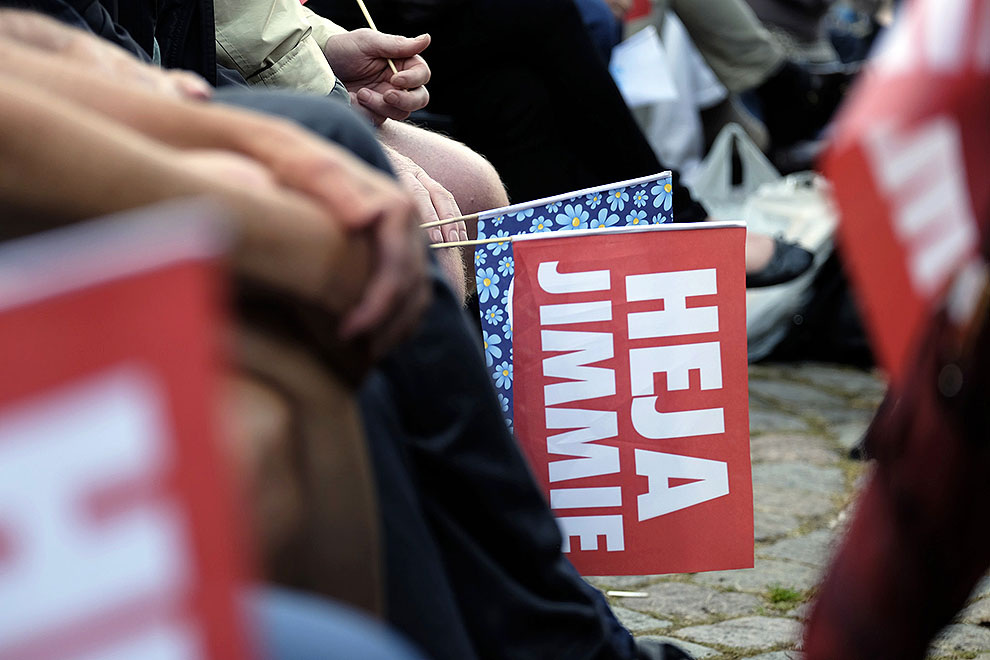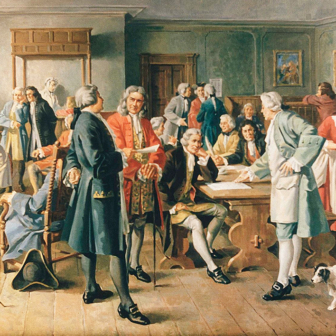Jimmie Åkesson, the leader of the Sweden Democrats, wears a suit and tie and speaks in the moderate tones used by mainstream Swedish politicians. The swastikas and skinhead outfits of the party’s early days are long gone. And, as last weekend’s national election showed, the party’s populist nationalism – they are Sweden Democrats, not to be confused with the century-old Social Democratic Party – is attracting a growing number of voters.
Åkesson’s Sweden Democrats cleared the 4 per cent hurdle to enter the Riksdag for the first time at the 2010 election, their 5.7 per cent of the vote translating into twenty seats. Preliminary results from this weekend have them at more than double that figure, 12.9 per cent, and likely to secure around fifty seats.
Over the past four years, the centre-right governing coalition of the Moderates, the Liberals, the Centre, and the Christian Democrats refused to have anything to do with the Sweden Democrats. Their votes were not sought for any legislation and they were offered no seats on parliamentary inquiries. Parties of the left took a similar approach: when the national broadcaster invited the Left Party leader to join a panel discussion, for example, he vacated the studio after learning that Åkesson was also participating.
The Moderate-led coalition was able to freeze the Sweden Democrats out because it held an outright majority of seats. During the recent election campaign, the leader of the Moderates pledged that no future coalition of the centre-right would contemplate cooperating with the Sweden Democrats.
Stefan Löfven’s incoming Social Democratic minority government can rely on support from the Left and the Greens. But to secure a majority he will need to negotiate support from one or two of the minor centre-right parties. The Liberals might support some measures; the Centre might support others. The Social Democratic Government will have to avoid controversial or austere budget measures.
Despite these short-term troubles for the incoming government, the signs are that both the Moderates and the Social Democrats, along with their respective minor-party supporters, will continue to freeze out the far-right Sweden Democrats. All the main interest groups – unions, business and the Social Democrats themselves – oppose key parts of the Sweden Democrats’ program.
Sweden’s trade unions have always promoted free trade and sought to contribute to the international competitiveness of manufacturing. They supported Sweden joining the European Union in 1994. There is no sign of this support softening to allow any concessions to the economic nationalism of the Sweden Democrats.
Sweden’s largest corporations remain strongly oriented towards international markets. SAAB and Volvo have each sold their motor car plants to US carmakers, but their heavy vehicle and armaments manufacturing continue within Sweden. Many Swedish engineering and paper-making corporations employ Swedes around the world. These employees mostly retain their Swedish citizenship and many of them vote for the centre-right parties, and they all support a strongly cosmopolitan worldview.
The Social Democrats have promoted a strong stance of multiculturalism and openness towards refugees since the 1969–76 prime ministership of Olof Palme. Their belief in these policies remains largely undiluted.
Besides bipartisan support for cosmopolitanism, the other reason for some optimism is that a new party, Feminist Initiative, increased its vote from 0.4 per cent to 3.1 per cent. This is not as strong as the surge in support for the far right, and it is still under the 4 per cent hurdle, but the Feminists largely support the left-of-centre parties. Their prospect of winning seats in 2018 will help to bolster the Social Democrats during trying negotiations over the next few years.
The minority Social Democratic government will face considerable problems over the next four years, but there are grounds for some optimism that the mainstream parties will continue to resist the far right in the far north of Europe. •




